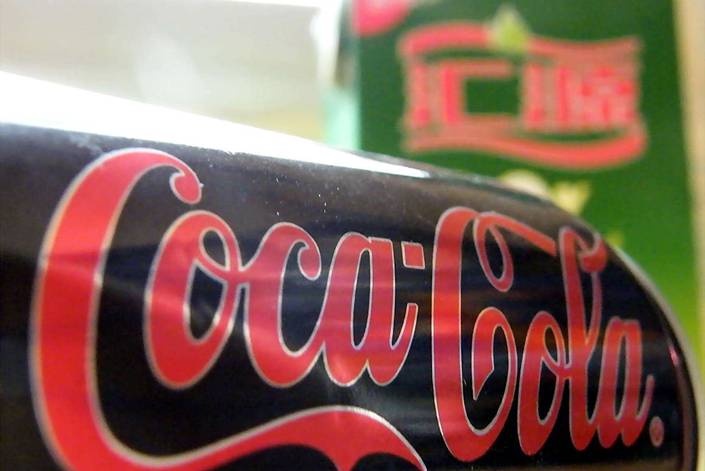Former Juice King Huiyuan Squeezed off Hong Kong Exchange

China Huiyuan Juice Group Ltd., once the nation’s leading juice-maker, spent its last day as a listed company in Hong Kong Friday, marking a quiet end for a brand that once made global headlines as an acquisition target for Coca-Cola Co.
Huiyuan’s shares have been suspended from trading on the Hong Kong Stock Exchange since April 2018 after the company failed to submit its annual financial results for 2017 on time. It has not released any financial data since its report for the first half of 2017, amid signals the company is suffering under a large debt load and poor corporate governance.
Despite several appeals to maintain its Hong Kong listing and resume trade, Huiyuan failed to convince the Hong Kong Stock Exchange to change its previous decision to delist the company, Huiyuan said in a statement on Thursday. Accordingly, the last listing day for the shares was Friday, and the stock exchange announced the listing will be canceled as of 9 a.m. next Monday.
“The board is disappointed with and cannot agree with the Listing Review Committee’s decision and the board is of the view that the company has already used its best endeavors and utilized all available resources in its attempts to satisfy the resumption conditions,” Huiyuan said in its statement. It added that its shares will remain valid for people who still hold them, but that the stock will no longer be tradable on the stock exchange.
The bow-out marks a whimpering end for a company that once held out huge promise due to its status as the leading maker of fruit drinks that have enjoyed booming sales with the rise of China’s middle class.
The company’s strong growth prospects drew investors to its Hong Kong IPO in 2007, when it raised more than $300 million and saw its shares surge on their first trading day. The stock would go on to nearly double from its IPO price, and surged once more when Coke announced a deal to purchase the company for $2.5 billion in 2008.
But that deal ultimately soured months later when China’s market regulator failed to give it the green light, in the first major veto of its then-recently revamped monopoly law. At the time, Huiyuan, which was more than a fifth-owned by France’s Danone, controlled about 10.3% of China’s juice market, followed closely by Coke with 9.7%.
While the regulator declined to elaborate on its decision, many speculated the move may have had nationalistic elements since Beijing officials may have been reluctant to cede a homegrown national champion to a foreign company.
Huiyuan’s shares have gradually faded since the merger’s collapse. The company controlled just 6.9% of China’s beverage market last year, making it the third largest player behind Coke and Ting Hsin International, according to Euromonitor. Its stock was trading at just over HK$2 ($0.26) when its shares were suspended in April 2018, representing a third of their IPO price. The company was still profitable in its last financial report for the first six months of 2017. But its total debt had jumped sharply to about 8.6 billion yuan ($1.3 billion), up nearly 50% from 6 billion yuan a year earlier.
The company made headlines in the beginning of 2019 when it failed to repay a Hong Kong dollar convertible bond, adding its name to a growing number of Chinese companies defaulting on their debt over the last two years.
An independent internal control review released in February last year found numerous problems with the company’s internal processes. Those included seven transactions between July 2018 and April 2019 that failed to comply with the company’s own fund management procedures and listing rule requirements. The report also assessed the company’s overall corporate governance environment and said it found “medium to high” risks associated with various corporate governance elements.
A Huiyuan representative did not respond to a request from Caixin for further comment about the delisting or what the company aimed to do next.
Contact reporter Yang Ge (geyang@caixin.com) and editor Joshua Dummer (joshuadummer@caixin.com)
Download our app to receive breaking news alerts and read the news on the go.

- PODCAST
- MOST POPULAR






